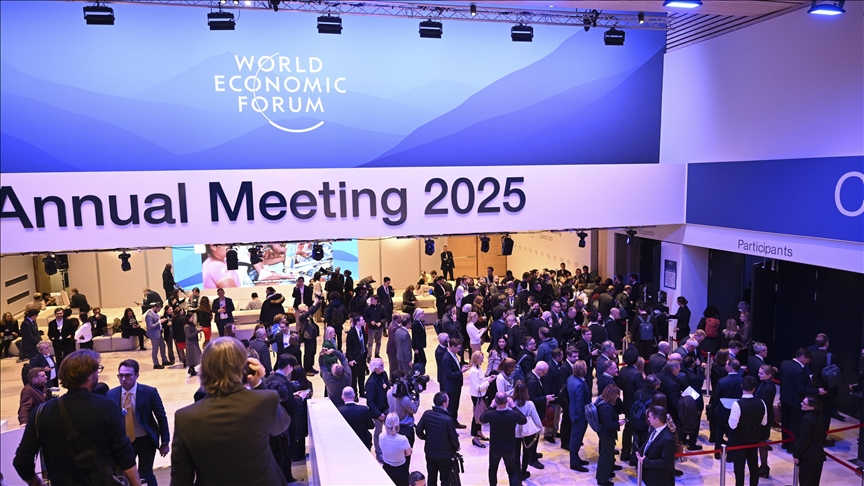Annual World Economic Forum wraps up, identifies 'critical priorities in uncertain era'
Major economic summit in Davos held 220 sessions on issues such as US-China relations, global economy, inflation, trade, AI
 World Economic Forum 2025
World Economic Forum 2025
ISTANBUL
The 55th annual meeting of the World Economic Forum (WEF) ended on Friday with the forum president's closing speech in Davos, Switzerland, identifying "critical priorities in a new and more uncertain era."
This year's Davos summit, which started on Monday, was organized under the theme of "Collaboration for the Intelligent Age."
In his closing remarks, WEF President Borge Brende said that this week has seen tremendous political, geopolitical and macroeconomic uncertainty, adding: “Right now, time is rapidly running out to meet critical political priorities.”
Stating that the only way to find ways to promote economic growth, reduce carbon emissions and end conflicts is to work together, Brende said: “But our operational approaches may need to adapt to a new and more uncertain era.
"There is a new political reality we are facing. We will need to be innovative and creative and work with each other, even if we don't agree on everything. The week in Davos showed that this is possible. Diverse leaders from around the world, from the public and private sectors, came together to show how we can collaborate," he added.
On Thursday, US President Donald Trump delivered a speech via videoconference in Davos and then answered questions from four senior company executives.
This was his first significant speech to the world political and business leaders and he made important remarks on many issues such as his first four days at the office, global inflation, possible tariffs, and "Making America Great Again."
While 220 sessions were held at the summit, 3,000 participants attended the meet, including business people, politicians, academics and representatives of non-governmental organizations from more than 130 countries.
At the summit, which was attended by nearly 60 heads of state and prime ministers, many issues were discussed, including global uncertainties, the new presidential term in the US, US-China relations, developments in Ukraine and the Middle East, artificial intelligence, clean energy transformation and protectionist trade policies.








